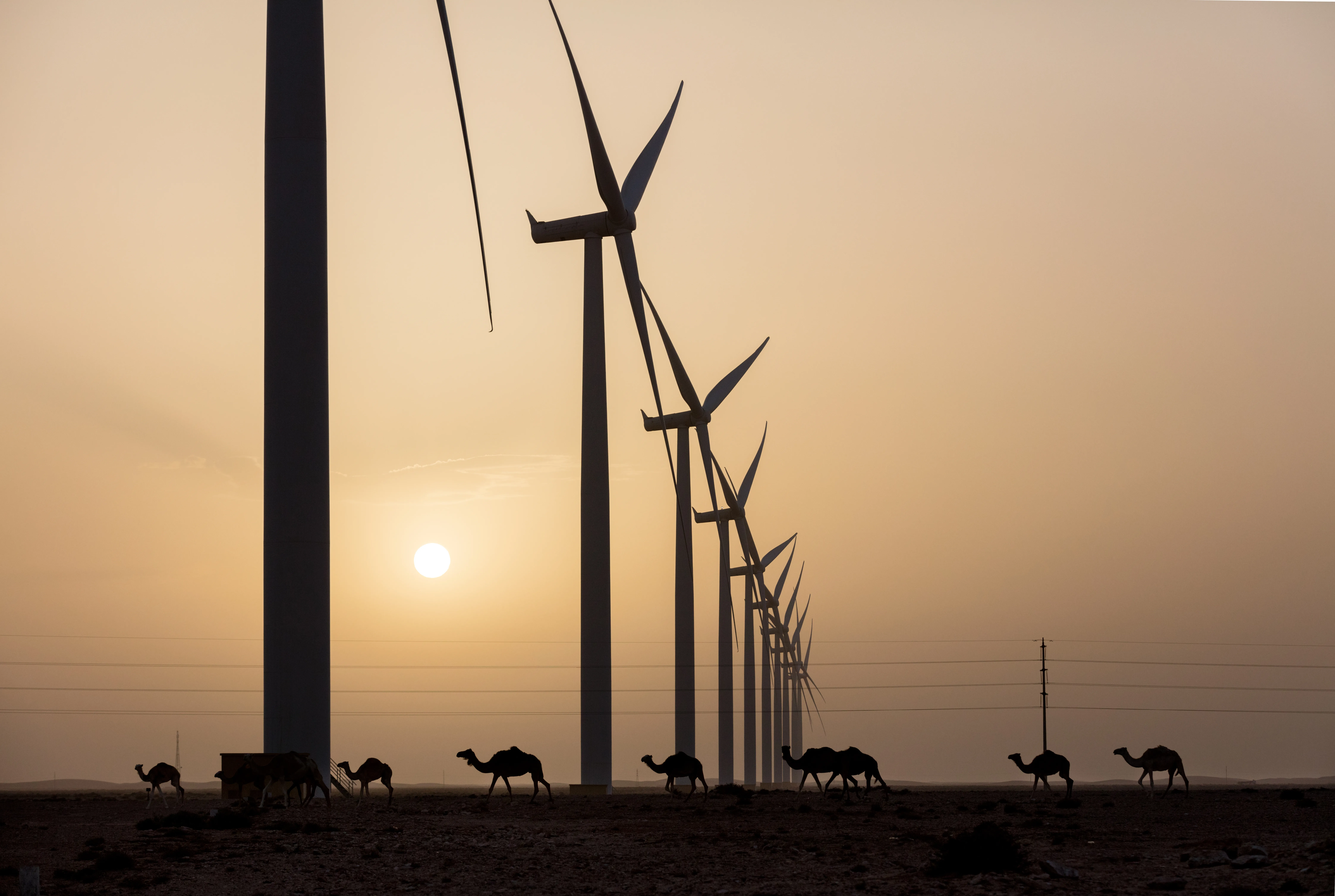Faced with acute electricity shortages, South Africa has been seeking to lessen its dependence on inefficient coal-fired power stations through an expansion of renewable energy sources – but concerns over the pace and extent of the politically-sensitive transition remain.
While certain policy challenges to investment in green power are being addressed, some investors worry about the government’s long-term commitment to reform. There is significant resistance within the cabinet and the ruling ANC to any substantive reduction in the dominant role of coal (and by extension the coal-mining industry) in the electricity-generation mix. Some 80 percent of the country’s power is still produced from coal.
However, South Africa has been bedevilled by chronic shortages of electricity for years. Ageing and poorly managed coal-fired power stations have struggled to keep up with demand. That has led to power rationing (so-called load shedding), with blackouts for up to 12 hours a day – frustrating citizens and businesses alike. The interruption to daily life slows commerce and discourages investment.
In February, President Cyril Ramaphosa said energy shortages posed an existential threat to the economy and the social fabric of the country. He declared a temporary ‘state of disaster’, granting the authorities emergency electricity procurement powers. It came just days after opposition groups and the country’s biggest trade union began legal action against the government and the state electricity utility Eskom over the crisis. Yet, while there is an urgent need to boost electricity supply, a greater reliance on cleaner sources is controversial for several reasons.
Firstly, it could adversely impact black-owned-and-staffed coal mining businesses located in ANC heartlands – where the mining industry is concentrated – and undercut the effective energy monopoly of Eskom. Secondly, there is a reluctance within the ANC to accept private investment in politically-sensitive sectors, especially the strategically-important power sector. Thirdly, and perhaps quite counter-intuitively, some environmental groups have also opposed certain renewable energy and gas-to-power projects. With the former their concerns have been around biodiversity, with latter on climate impact and economic viability.
Ramaphosa is attempting to navigate these obstacles to promote cleaner power and take advantage of South Africa’s natural potential for renewable energy – notably advancing a liberalisation policy last year aimed at reforming the centrally-planned electricity market. It gave new impetus to private solar and wind energy investment by addressing legal and regulatory hurdles.
The policy critically allows independent green energy operators to both increase production capacity without requiring an electricity generation licence and sell their electricity directly to customers, instead of having to go through the state utility. Furthermore, in January, a batch of additional electricity-boosting measures were announced, including emergency legislation plans for faster approval and development of production plants.
Though the energy reforms are beginning to address challenges facing renewables investors, the process and its goal of wider green power adoption is being resisted in certain quarters of government. There is strong opposition in cabinet from the likes of Minister for Mineral Resources and Energy Gwede Mantashe as well as from many within the ANC, who draw most of their support from mining areas. Eskom, meanwhile, is reluctant to give ground to new green energy players who in time could threaten its dominant position in the power market.
Mantashe, a former Secretary-General of the National Union of Mineworkers, has been particularly vocal in his support for coal as the primary source of power in South Africa. He believes it has the capacity to meet growing electricity demand in the country and has been quite reluctant about fully integrating renewable energy into the national grid.
So, while South Africa has successfully conducted bidding rounds for renewable energy projects over the past few years – delivering sizeable inward investment – the process has been dogged by resistance to the green energy transition. Foot-dragging has seen bidding rounds delayed and holdups in Eskom signing off on power purchase agreements with independent power producers, IPPs. More worryingly, the utility has spoken of renegotiating the latter, though it has not taken any concrete steps in that direction to date.
The uncertainty has raised questions among some investors about government commitment to the liberalisation process, which will ultimately determine the viability of investments in the renewables sector. Among the concerns is Eskom’s willingness to buy green electricity from IPPs and distribute it to end-users; and how soon permits for off-grid transmission options can be acquired from the national energy regulator NERSA.
Tackling the country’s energy crisis is critical to the ANC’s electoral prospects. Opinion polls suggest the party may not win a majority in general elections next year – which would be the first time it has failed to do so since the end of apartheid. With electricity security voters’ paramount concern, Ramaphosa will have to have made substantial progress on boosting electricity production for the ANC to do well at the polls.
Yet the president understands that in pursuing energy market liberalisation, and potentially green energy production, he cannot afford to alienate the ANC’s mining-constituency vote. So, how he will try to balance the interests of the renewables- and coal-generated electricity sectors in the run-up to the elections and beyond remains to be seen and will depend on whether the ANC wins outright or goes into coalition.
There is undoubtedly space for the two sectors since there is not enough power in the country. Yet moving away from coal mining as the main source for electricity-generation is politically-charged and complex. And while green energy operations are being incentivised despite the naysayers, the government needs to address the uncertainties investors face in order to assuage their concerns and bring more on board.
Want to continue reading? Subscribe today.
You've read all your free articles for this month! Subscribe now to enjoy full access to our content.
Digital Monthly
£8.00 / month
Receive full unlimited access to our articles, opinions, podcasts and more.
Digital Yearly
£70.00 / year
Our best value offer - save £26 and gain access to all of our digital content for an entire year!


 Sign in with Google
Sign in with Google 



